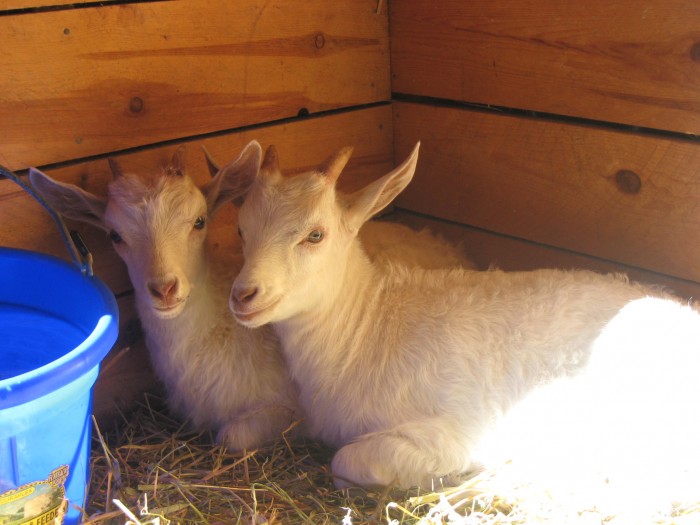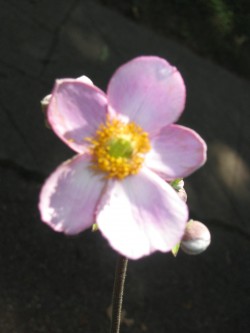I distinctly remember the day I turned vegan.
Through a series of serendipitous events, (I won’t call them coincidences), I found my way to reading books that led me to the plight of factory farmed meat.
I couldn’t even call the tortured creatures that lived on factory and other farms “animals” anymore, just meat, because they were being treated as simply a means to an end. A disturbingly inhumane end.
I had been raised on meat, dairy and eggs. I liked those things. I ate a traditional Polish diet. My adoptive parents had gone through the Second World War and food, all food, was regarded as nothing less than holy, which one can only understand if one has been hungry. I had been hungry.
In Poland, where I scavenged eggs, tomatoes and plums from my neighbor’s gardens to fill the larder as a five-year-old, I was a thief. Veganism, to my relatives, seemed like a First World luxury, where one had access to a multitude of expensive, imported food choices.
I was suddenly on the outside; a freak who did not understand the economics and nutritional value of food. And what was I to be fed at the holiday table? All of us who have made the transition to vegetarianism/veganism can tell stories of needing to explain ourselves countless times, and bear the condescending looks.
Veganism was a consciousness shift. It brought me toward other paths and causes that I would champion. Like environmental activism. Like expanding my awareness to the sacredness of all life forms. Like a trip to Findhorn, where there was not a scrap of meat to be found within the community, and which had several females sneaking beef jerky to my husband from town because he once almost disappeared when he tried vegetarianism in support of me. (What women will do for a good looking, spiritual man.) But I digress.
For those readers not familiar with the Findhorn community in Scotland, it is a magical place founded on the principles of the sacredness of life and where a garden of nothing less than miraculous proportions was established with the co-operation of nature divas.
Yes, that meant communicating with ethereal beings that belonged to each flower and vegetable. Before I had come to Findhorn, I had read much about the consciousness of plants, their sentient intelligence, and one day, to my complete surprise, I was gifted with a soft, telepathic communication from a flower in my garden as I approached her with scissors in hand.
And that moment was pivotal in my shift from vegan to what I can only describe as a champion of all sentient beings. A difficult moment, much more intense than when I understood that animals were my brothers and sisters; this moment required me to understand that if I was to live on this planet, something would have to die in order for me to survive.
Suddenly I understood these things:
All things are sentient. Even rocks. All things feel. Perhaps not describable in the same terms as humans, but they do. Plants are intensely aware of suffering and shrink back when aware that they will be harvested. This occurs when the human has the thought of harvest; it can be long before the actual deed.
Plants are telepathic and can even identify criminals in a line-up, such is their conscious awareness wow! They knew! Knew like humans know, only more, apparently.
Plants want to live as much as animals do. That we humans are still at an evolutionary stage that most of us cannot recognize their suffering (because they have not eyes and faces to communicate with like an animal has) doesn’t change the fact that they are screaming their protest.
And now I was in a serious quandary. Because the flower who asked me for the courtesy of a warning before I cut her down, (plants will put themselves into a type of coma to escape the pain of harvest), brought me to tears and in direct contact with my superior attitude toward meat eaters.
What was I to eat now? Knowing that this live being had the voice to tell me what she was feeling made me question everything I had known until then.
We went on a journey, plants, animals and I. I faced the fact that as a vegan, I was thin, yes, but not healthy. I had ignored these things, such as memory loss and a constant battle with low blood sugar levels because I so wanted to not participate in the suffering of animals. It’s not like I didn’t know how to eat; I am a Holistic Nutritionist by training. I’ve counselled plenty of vegans in my clinic.
My body just needed animal protein after years of abstaining. I knew that carbs break down into simple sugars and animal proteins break down into amino acids, so I could not make my chickpea “protein” any less the eventual carb than it really was. When my body yelled “feed me amino acids,” I actually heard it physically. But it’s not easy being a “sensitive” to all energetic forms.
I spent hours in my garden listening to plants, communing with my dairy goats and chickens, taking advice from devic beings and meditating on my findings.
I no longer had the luxury of believing that I was causing no death, no suffering when I ate. It split me open, devoured me whole, and left me questioning my lifestyle. I read everything I could on plant consciousness in an effort to understand my journey.
I found these things (the shortened list):
Animals die when we eat vegan. All those big machines that harvest corn, wheat, soy, quinoa or spelt chop up rabbits, voles, mice, birds and their ground nests, even foxes. I no longer could say I had killed nothing. A sobering and humbling thought.
Rivers are run dry and eco-systems destroyed (this includes displaced wild animals) to water all the grain production we require to sustain us. Yes, humans are the other reason why so much grain must be produced and so much land is stripped for acres and acres of agriculture; we can’t just blame those cows.
Plants are not treated ethically when they are grown on factory farms. They are poisoned, and treated without any dignity. They suffer.
Precious topsoil is lost on the acres and acres of open fields left after our staples are harvested. This stuff can’t be reproduced in a couple of years. Over-cultivation of land is a real threat to the environment. I was part of the problem as a vegan. Again, an affront to my belief that I was causing no or less harm.
Imported food stuffs that I ate as a vegan put unsustainable pressure on the environment. I could ignore it or face it. How much did it cost society and the planet for me to support my habit as a non-meat eater? If I was to remain a vegan or vegetarian, I would now make choices for as much locally produced fare as possible. Hundred Mile Diet anyone? Not easy as a vegetarian, I’ve tried it.
At some point I began to shift my thinking toward a lifestyle that suited my beliefs. I hated it when someone told me that my veganism was ridiculous and had no intention of converting anyone to my new way of living. I simply wanted to live according to what I found to be true for me. If no one agreed, that would be fine—I’ve never run with the pack anyway.
What I wanted was to value all life forms, and to protect the environment as best as I was able to. Of course, no one can claim to be living the lifestyle, there is no such thing, and when one does say it to me, I regard it with the same suspicion as I do religious fanaticism. It is time we supported each other on our individual journeys.
To conclude, though my plan is not perfect, I now support a varied diet, as much local, organic or sustainably farmed as possible.
But I love lemons, olives and coffee, so these I buy judiciously and support fair trade. Vegan meals are still a staple, but contain more things I have grown myself, like a leek soup instead of stuff from Mexico or California which are thousands of miles away from me. When I eat meat, it is locally grown by organic farmers whose treatment if animals I can agree with…free roaming, loved, honored.
I have harvested both plants and animals in my time. Both with equal sacred ceremony, and many tears. I leave notes in my garden to the vegetables and send telepathic messages before harvesting my beets. None of it is easy, but then, life teaches us many difficult lessons. I have had great conversations with both goat and thyme. Their wisdom is non-judgmental. They are great teachers.
My thoughts here are my path only. My hope is that meat eaters and vegetarians will find common ground in our passion for the ethical treatment of all living beings and in supporting sustainable farming practices. We need to eat less meat and also less factory farmed vegetables. We certainly do not need to agree on it all. What would we learn if we all had but one thought?
I leave you with a list of books that I found helpful on my journey.
Empty Harvest: Dr. Bernard Jensen and Mark Anderson Avery Press
The End of Food: Thomas F. Pawlick Greystone Press
The Secret Life of Plants: Peter Tompkins and Christopher Bird
The Vegetarian Myth; Food, Justice, and Sustainability: Lierre Keith Flashpoint Press
The Findhorn Garden; Pioneering a New Vision for Humanity and Nature in Cooperation: The Findhorn Community.
Relephant:
4 Ways to Come Back from a Vegan Diet Fail.
Author: Monika Carless
Editor: Catherine Monkman
Photos: Author’s Own
 Share on bsky
Share on bsky







Read 25 comments and reply